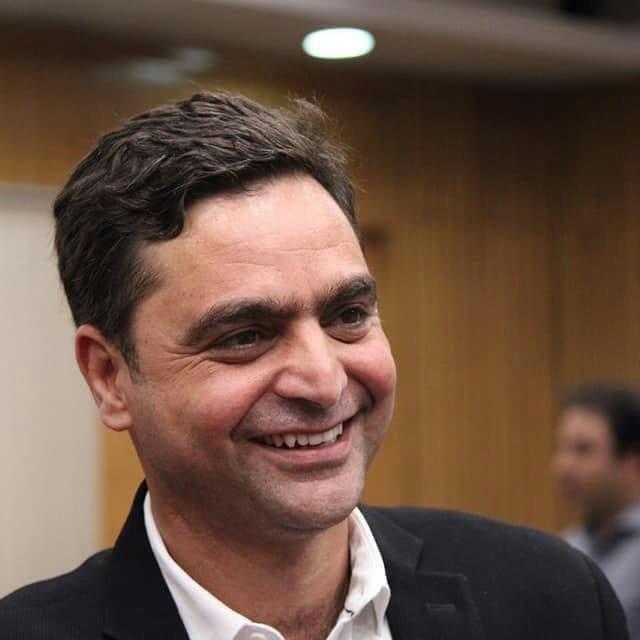At the fag-end of last year, as the postpaid mobile phones finally started ringing in the valley, overwhelming scenes ensued. The blockade had instilled its own dreaded sense in locals caught in curfew and clampdown. Here is one such hostage account talking about captivity, communication crisis and chaos that refuses to thaw.
By Hirra Sultan
14 October 2019 was the day when communication lines in Kashmir were supposed to be restored. I had my phone in hand since 11 in the morning, wondering when this miracle would happen. Sounds melodramatic? But being denied any communication for two months can make anything seem like a miracle!
Calling relatives, most of us were worried about their wellbeing and just wanted to make sure everyone was well. Some of us were just happy to hear their voices, so much so that we couldn’t even say anything. No words could have justified the emotions. Hence the tears.
I got quite some calls from friends, all of them asking whether everything is alright and what I did all this while. What could I do? What was there to do for that matter? There was a curfew in place, and we had been cut off from everyone. What was happening in my neighborhood came to me through a news channel.
I felt like some political prisoner, under a house arrest and no way of communication with the outside world. I couldn’t even tell all of these people what all of us went through. Phone calls, we presumed, were being tapped and none of us wanted any trouble.
Even if I wanted to tell anyone how these months felt like, how would I put all of that in words? How to tell all the anxiety we faced. Why were we shut off from everyone? What devilish plans did the government have for us as to take such steps?
Add to that, the fact that the tourists and yatris were asked to leave the valley as soon as possible reminded many of those harrowing days of 90s—when the Pandits were asked to leave by the then governor, Jagmohan, leaving behind the Muslims at the mercy of military. So, were they planning something similar? As none could tell anything, a paranoid sense got unleashed on all of us.
I guess, all of us were ready to learn that this was going to be unprecedented. A nightmarish flash ran in my head: A beautiful summer landscape turning scarlet!
Thanks to the lack of any means of communication we didn’t even know how many were put in dungeons. There were protests, as the international media reported, but the national media and government swiftly denied all these reports and called it the classic P-propaganda.
All through these months our source of news was rumors.
We didn’t even know what to trust. It was the most ambiguous of times in our lives.
What was happening? Was all of this a planned violence? How long were we going to stay in a curfew and how long would they keep lying that everything is normal in Kashmir? How long were we supposed to sit at our homes and wonder what future has for us?
Amid such barrage of queries, one picked up some weird routine to stay sane.
My wardrobe has 10 handles and 2 locks. The desk attached to it has 20 surfaces and the mirror has 15 outlines. The ceiling has 45 large boxes and 12 lines that go from wall to wall. I have some 62 books of literature apart from the professional ones. There are 50 sticky notes pasted onto my study table and 13 posters adorn my wall. The numbers never change however many times I count them. I have run out of books to read and many times I just don’t want to read anymore. It was getting too much to take. While I counted the trivial things, one question kept haunting me: What else can I do now?
So, one day, amid curfew, I went out to take a walk. But it ended with an incident of stone pelting. I hid in a shop with the shutters closed for some half an hour till the dust settled. It made the living room the only supposed safe place to stay for me, but it was getting depressing with every passing day.
We had witnessed the abrogation of the twin articles—370 and 35a, which gave special status to Jammu and Kashmir under Indian constitution—and the fact that New Delhi imposed the unilateral decision was undeniable.
As the months passed we got a clearer idea of why they took this extreme step. I heard people talking about land and resources becoming a new rallying cry in the mainland. And what escalated this sense of anguish was the constant communication crisis unleashed in the region in wake of what many in the ruling regime refer as ‘a D-day in Indian Democracy’.
Having said that, those 75 days without telecommunication were hopeless. It felt like we were in some dark tunnel, without an end. Sometimes I tend to think it was an attempt to break our soul and hope. And, what is a human without soul and hope?
To maintain their sense of safety and sanity, many people left the state. Others wanted to stay together, as if pledging—“let’s die together”—in case of a war between India and Pakistan.
Probably, all of us were anticipating some great trouble—maybe some armed men barging into our house and firing everyone, or a bomb being dropped on the Sun city in an air strike.
I don’t think I had any hope left of ever coming in contact with the world again. With people I loved to spend time with. Or take a walk on the bund road again, by the river. Stepping on red Chinar leaves. Would we ever be allowed to live again?

I have “The handmaid’s tale” in my collection. In it, at a particular moment—similar to our last summer—the Commander says that they did all of it ‘to make a better world; just that a better world does not mean better for everyone, for some it means worse’.
I guess the same holds true for what is happening with us. The decision might boost or better some of our prospects, but the pending political problem continues to fester like a putrefying wound. And what adds salt to it is the new war cry that Kashmir has become for the regime of the day.
In every rally that home minister Amit Shah and other BJP leaders have been attending since last summer, they ask the attendees whether they did right about the abrogation about Kashmir. And that everything is normal and this is the perfect way to go forward are some pumped up narratives being sold in the name of Kashmir.
And then, there’s some grave unpretentious politicking. Like a recent statement of Ram Madhav: ‘Indian jails have enough capacity to hold Kashmiris’.
If that is what it takes to maintain the calm, one wonders: what is next then?

















